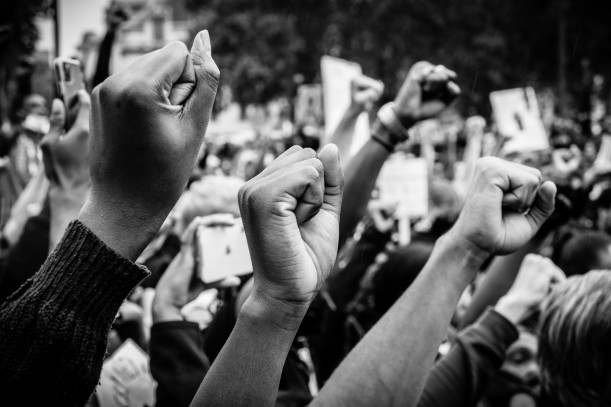Past Neither Simple, Easy For Millions

(Vincenzo Lullo / Shutterstock)
The etymology of “nostalgia” combines the Greek words for home and pain. Many of us see nostalgia as just that: homesickness for a time past. But for millions of Americans, what we might like to call the good old days weren’t so good.
A number of them let Nikki Haley, presidential candidate and former South Carolina governor, know as much after she tweeted, “Do you remember when you were growing up, do you remember how simple life was, how easy it felt? It was about faith, family, and country. …”
Her detractors detailed how unsimple and uneasy life was for them, facing unchecked discrimination, inequality, institutional racism, brutal and generational poverty, misogyny, anti-semitism and more. Not so simple. Not so easy. And sadly for some, it’s still today’s reality.
Some of us may have indeed had charmed, uncomplicated childhoods, but to assume that personal history for all Americans is clearly wrong and is more than a misunderstanding of its facts from redlining to Little Rock to lettuce boycotts.
Haley and anyone running for the presidency — or for any office, for that matter — would do well to remember that “The Wonder Years” may have been great television but it was fiction; that the gifted Norman Rockwell was painting snapshots of singular lives; and that toe-tapping, sweet memory-inducing golden oldies were just songs — even the ones that called us to change the world or perhaps just ourselves.
I’m curious, too, because Haley felt the sting of discrimination growing up in the only Indian family in Bamberg, S.C. She has said that she and her parents “never gave in to grievance and hate,” which is courageous and inspiring. But surely she recognizes that millions of other “others” have vastly different stories — underscoring the importance of teaching a true American history, not the redacted, revisionist version in which woke-fearing, book banners now traffic.
Nevertheless, after Haley’s wistful, however mythic tune hit a sour note, a backup band played its own golden oldie: the six black robes of the Supreme Court majority. Within days of her tweet, they issued a number of decisions that made me think Eisenhower might still be in office. Noted historian Heather Cox Richardson went further: “… the Supreme Court …, [made] decisions that will continue to push the United States back to the era before the New Deal.”
An affirmative action case was front and center. The justices shocked no one when a 6-3 majority held that race should not be a factor in college admissions. Chief Justice John Roberts, writing for the majority, said policies at Harvard and the University of North Carolina “ … cannot be reconciled with the guarantees of the Equal Protection Clause. Both programs lack sufficiently focused and measurable objectives warranting the use of race, unavoidably employ race in a negative manner, involve racial stereotyping, and lack meaningful endpoints. We have never permitted admissions programs to work in that way, and we will not do so today.”
Dissenting, Justice Ketanji Brown Jackson wrote, “With let-them-eat-cake obliviousness, today, the majority pulls the ripcord and announces ‘colorblindness for all’ by legal fiat. But deeming race irrelevant in law does not make it so in life.”
The case did shed some needed sunlight on legacy admissions, a “good old days” policy in some colleges where children of alumni (or perhaps large donors) get preferential treatment, in practice a type of affirmative action for whites.
The other decision that rocked the time warp concerned a Colorado website designer whose business, open to the public, pointedly denied services to a gay couple. The owner found the pair’s impending marriage morally objectionable. The high court agreed, calling her web page design “speech.” Dissenting justices said the case was not about speech but rather conduct.
The case’s backstory assuredly had John Jay’s heavenly robes in a bunch. The complainant never actually had a customer request a website for a gay wedding, and the man named in complaint is neither gay nor aware that his name was used to change one of the tenets of our way of doing public business. All of which makes it appear to this amateur law student that the SCOTUS decision was based on a hypothetical.
The problem, however, goes well beyond court filing shenanigans. Earlier this month we celebrated the document on which our equality is based. The court now, however, essentially holds that for those running establishments serving the public, and therefore bound under the principles found in public accommodations law, some customers are more equal than others.
Sound familiar?
Old?
Backwards?
That’s because it is.
George Ayoub filed nearly 5,000 columns, editorials and features in 21 years as a journalist for the Grand Island Independent. His work has been recognized by the Nebraska Press Association and the Associated Press and was awarded a national prize by Gatehouse Media. He is a member of the adjunct faculty and Academic Support Staff at Hastings College. This editorial was republished from the Nebraska Examiner, an editorially independent newsroom providing a hard-hitting, daily flow of news. It is part of the national nonprofit States Newsroom. Find more at nebraskaexaminer.com.
Category:
User login
Omaha Daily Record
The Daily Record
222 South 72nd Street, Suite 302
Omaha, Nebraska
68114
United States
Tele (402) 345-1303
Fax (402) 345-2351




